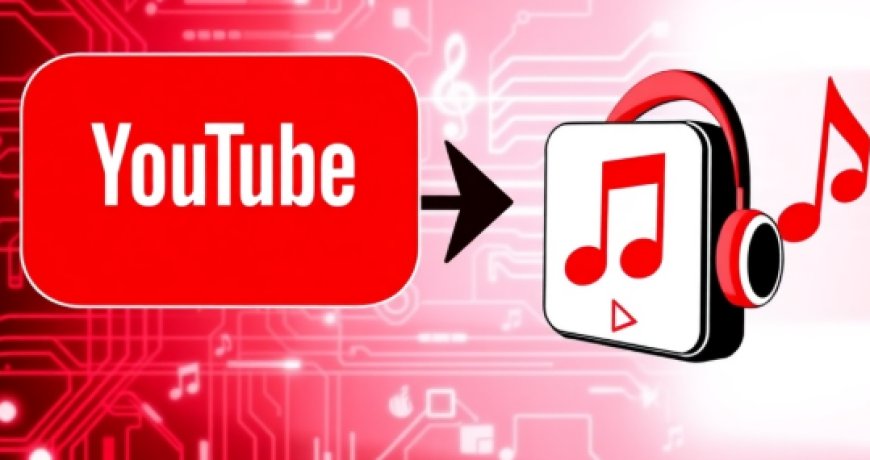The Pros and Cons of Using YouTube to MP3 Converters

As digital media continues to dominate our everyday lives, YouTube to MP3 converters have surged in popularity, offering users a quick and convenient way to extract audio from videos. Whether its a motivational speech, a music video, or a podcast, many find these tools incredibly useful. But with convenience also comes concernlegal issues, quality degradation, and ethical questions are all tied to their use. In this article, we explore the advantages and disadvantages of YouTube to MP3 converters in a detailed and balanced way.
What Are YouTube to MP3 Converters?
YouTube to MP3 converters are online or software-based tools that allow users to convert the audio track of a YouTube video into an MP3 file. Once converted, the MP3 can be downloaded and stored for offline listening. These tools range from simple browser-based converters to more sophisticated desktop applications with batch conversion capabilities.
Pros of Using YouTube to MP3 Converters
1. Offline Accessibility and Convenience
One of the most significant advantages of YouTube to MP3 converters is the ability to listen offline. Users can convert music, lectures, and interviews into portable audio files for use without an internet connection. This is especially beneficial for:
-
Commuters
-
Travelers with limited data access
-
Students needing repeated playback of educational content
2. Versatility of Use
MP3 files are universally compatible with nearly all devices and software platforms. From smartphones and tablets to laptops and car audio systems, users can play their converted files without worrying about compatibility.
Additionally, you can create personalized playlists or transfer MP3s to devices like:
-
MP3 players
-
Smartwatches
-
Bluetooth speakers
3. Saving Bandwidth and Data
Streaming a video multiple times can consume substantial data, especially in HD. Converting a video to MP3 and storing it locally reduces repetitive data consumption. For users with limited internet packages, this is a cost-effective and efficient solution.
4. Ideal for Audio-Only Content
Many YouTube videosparticularly podcasts, audiobooks, guided meditations, and music tracksdo not require visuals. In such cases, converting to MP3 saves storage space and improves user experience by eliminating unnecessary video components.
5. Accessibility for Educational Purposes
Students and educators often utilize YouTube for learning materials. Converting lectures and tutorials into MP3s allows for better note-taking, review during offline hours, and integration into other learning platforms or devices.
Cons of Using YouTube to MP3 Converters
1. Legal and Copyright Issues
Perhaps the most critical concern is the legal grey area surrounding YouTube to MP3 converters. Downloading copyrighted material without permission violates YouTubes terms of service and can lead to legal repercussions. Its essential to distinguish between:
-
Public domain or Creative Commons content (generally safe to convert)
-
Commercial music and protected content (often illegal to download without a license)
2. Quality Degradation
Audio quality can suffer during the conversion process. While many converters promise high-quality MP3 files, the final product depends heavily on:
-
The original video quality
-
The bit rate settings during conversion
-
The capabilities of the converter tool itself
This means you might lose audio fidelity, especially in music with rich instrumentation or layered vocals.
3. Exposure to Malware and Pop-ups
Many free YouTube to MP3 websites are riddled with intrusive ads, malware, or deceptive download buttons. Users often risk:
-
Downloading harmful software
-
Unwanted browser extensions
-
Compromising personal data
Unless youre using a trusted platform, this presents a significant security risk.
4. Unreliable or Inconsistent Performance
Not all YouTube to MP3 converters offer the same performance. Free tools often have:
-
Slow conversion speeds
-
Limited file length support
-
Frequent downtimes
-
Watermarks or restrictions
Premium versions may offer better functionality, but most users gravitate toward free tools and face these issues regularly.
5. Ethical Concerns for Content Creators
When users download audio without watching the full video or skipping ads, content creators lose potential ad revenue. This undermines the financial ecosystem of creators, especially independent artists and educators who rely on views and ad engagement.
Best Practices When Using YouTube to MP3 Converters
To mitigate the risks and still enjoy the benefits, here are a few best practices to follow:
-
Only convert copyright-free or legally shareable content
-
Use trusted, ad-free converters or install desktop software from reputable developers
-
Always scan downloaded files with antivirus tools
-
Consider supporting the original creators through donations or official purchases
Top YouTube to MP3 Converter Tools (2025 Edition)
Heres a list of reliable and user-approved tools that prioritize user safety and output quality:
1. 4K YouTube to MP3
-
Desktop app
-
High-quality conversion up to 320kbps
-
Batch conversion supported
2. YTMP3
-
Simple and fast web interface
-
No registration needed
-
Limited to 90-minute videos
3. ClipGrab
-
Free and open-source
-
Includes video downloading and audio extraction
-
Supports multiple video platforms
4. SnapDownloader
-
Cross-platform (Windows/Mac)
-
Downloads audio from 900+ sites
-
Built-in proxy support
Should You Use a YouTube to MP3 Converter?
The decision ultimately comes down to intent and awareness. If youre converting royalty-free content for personal use, the benefits often outweigh the drawbacks. However, if your goal involves copyrighted materials, its crucial to recognize the legal and ethical implications.
When used responsibly, YouTube to MP3 converters remain a powerful tool for enhancing audio accessibility, improving media consumption, and maximizing productivity. Always remember to stay informed, ethical, and cautious while using such tools.
































